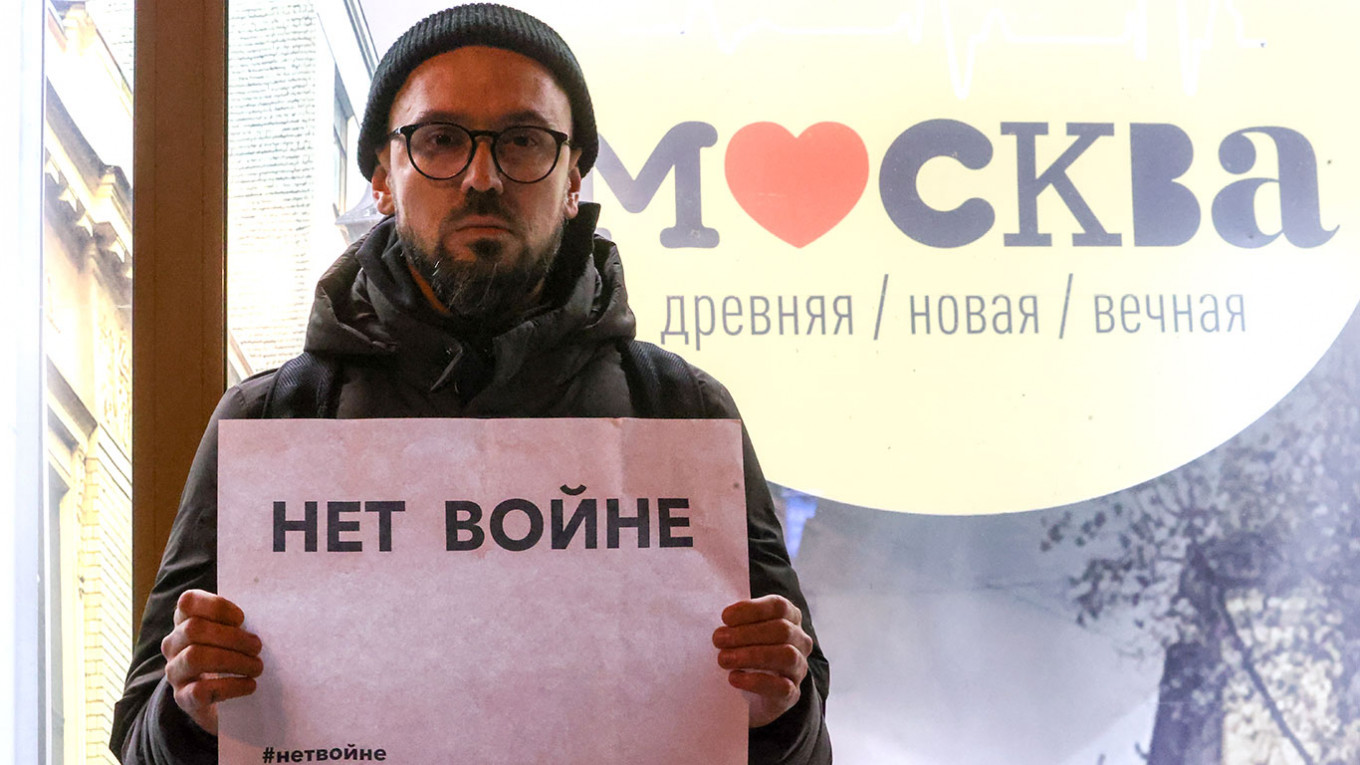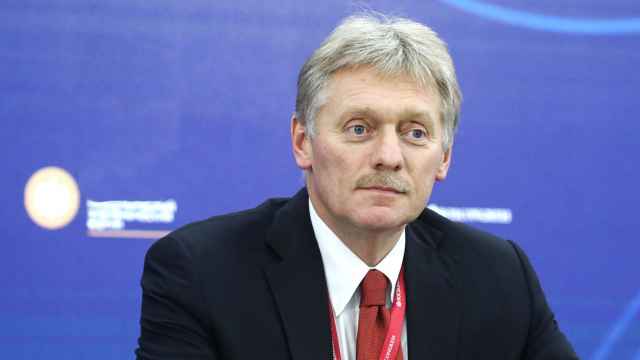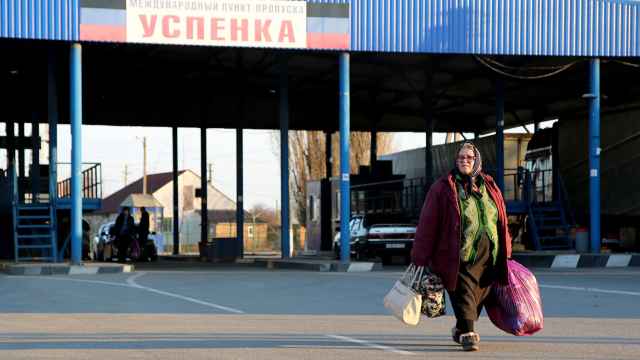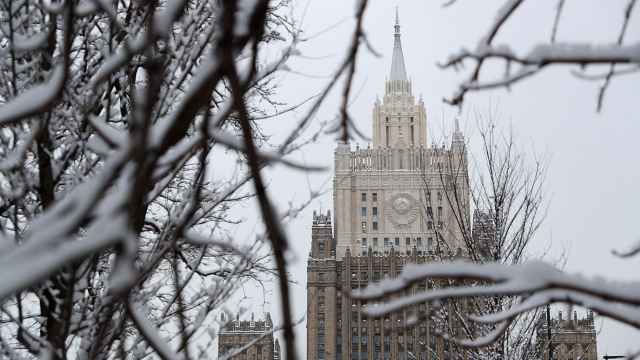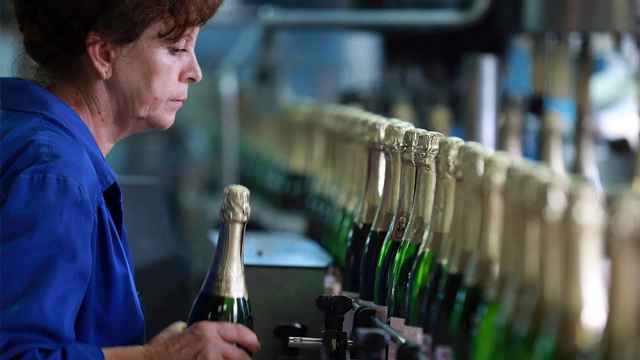On day two of the war in Ukraine, much of Russia’s population remained in shock and strongly divided over the Kremlin’s claims that it had no choice other than to invade.
Anti-war protests took place in over 50 Russian cities on Thursday night, with almost 2,000 arrested according to the OVD-Info watchdog amid major security force deployments in Moscow, St. Petersburg, Yekaterinburg and Novosibirsk.
Though Russia’s organized opposition has been all but smashed since the crushing of protests against the jailing of its de facto leader Alexei Navaly a year ago, many still turned out.
“I felt extremely ashamed and helpless, said one anti-war protester, a twenty-something Moscow school teacher, who asked for anonymity to protect against reprisals.
“It was important for me to show that Putin’s decision is not the people’s decision,” she added. “Not even close.”
Though polls conducted since the outbreak of war have been scarce, there is some indication of a population divided on the need for war.
A poll published by the independent Levada Center on Thursday, as Russian tanks rolled across the Ukrainian frontier showed 49% of Russians believing that war was either unlikely or entirely impossible, even as a slim majority expressed a negative view of Ukraine.
The picture of a divided nation was echoed in the positions taken by its cultural establishment.
As traditionally opposition-leaning celebrities like YouTuber Yury Dud and rapper Oxxxymiron — who called for a Russian anti-war movement modeled on that of the United States in the 1960s — spoke out, so too did some of their typically more cautious peers.
A string of sportspeople, musicians and TV presenters who earn their livings from lucrative contracts on state media, have come out publicly against the war, even as they mostly avoid criticizing Russian President Vladimir Putin directly.
After Ivan Urgant, a popular late-night host on the flagship Perviy Kanal TV channel spoke out against the war, his Friday night show was reportedly canceled.
“Fear and pain. NO to war,” the star had written on his Instagram, echoing a phrase widely posted by anti-war Russians.
On Russia’s main state channels, a roster of belligerent political talk shows have provided coverage of the war, with Friday’s Perviy Kanal schedules cleared for a six-hour special edition of Vremya Pokazhet (“Time Will Tell”), a long-running chat show dedicated to foreign policy, featuring aggressive denunciations of the West and Ukraine.
However, some dissent was registered there, too.
After Elena Chernenko, a well-respected foreign policy reporter at the business daily Kommersant which is seen as ultimately loyal to the Kremlin, organized and signed a petition of journalists against the war, she was removed from the Foreign Ministry’s pool of reporters.
On her Telegram channel, Chernenko said a Foreign Ministry spokeswoman had accused her of “setting up” her co-signatories, who included journalists at state-funded English-language news network RT, and the state-run newswire TASS.
"No good scenario"
Among the country’s expert community, many of whom work in state-funded think tanks that provide advice and consultation to the government, there is broad shock at the invasion.
Few analysts expected Russia to mount a full scale invasion of Ukraine, believing instead that a months-long buildup on the border had been mounted to win concessions, rather than execute a military offensive.
For Sergei Utkin, head of strategy at the state-linked International Relations Institute of the Russian Academy of Sciences, Russia’s lurch into war is both a personal shock and a national catastrophe.
“There is no good scenario that can come out of this war,” said Utkin, who said most of his peers were opposed to the move.
“We’ve had difficult relationships with Ukraine on a state level since 2014, but this means that will extend to the personal level, too.”
But with Russians largely unable to influence government policy in an increasingly authoritarian political system, few opponents of the war believe they stand a meaningful chance of bringing hostilities to a halt.
For the Moscow school teacher who protested on Thursday night, a moment of unity with other opponents of the war inspired a brief flash of hope.
“Being in the crowd, and hearing them chant felt surreal, heartbreaking but quite comforting,” she said.
“But I think we were all scared for the future. And still are.”
A Message from The Moscow Times:
Dear readers,
We are facing unprecedented challenges. Russia's Prosecutor General's Office has designated The Moscow Times as an "undesirable" organization, criminalizing our work and putting our staff at risk of prosecution. This follows our earlier unjust labeling as a "foreign agent."
These actions are direct attempts to silence independent journalism in Russia. The authorities claim our work "discredits the decisions of the Russian leadership." We see things differently: we strive to provide accurate, unbiased reporting on Russia.
We, the journalists of The Moscow Times, refuse to be silenced. But to continue our work, we need your help.
Your support, no matter how small, makes a world of difference. If you can, please support us monthly starting from just $2. It's quick to set up, and every contribution makes a significant impact.
By supporting The Moscow Times, you're defending open, independent journalism in the face of repression. Thank you for standing with us.
Remind me later.



